JBL ProAquaTest NO3 Nitrate, Refill
Water tester
£11.75
(Price shown includes 20% VAT. - Excludes delivery costs)
Features & Advantages
- Easy and safe control of the water values of aquariums
- Determination of nitrate content in freshwater and saltwater aquariums, as well as ponds
- Laboratory comparator system for balancing water colouration
- Detailed information on water analysis on the JBL Homepage
- Child-safe reagent bottles
- Application to check for green algae problems
Item no.: JBL-2412600, Content: 1 set, EAN: 4014162241269
Description
The JBL ProAqua Test NO3 is a water test for analysing the nitrate content in freshwater and seawater aquariums, as well as in the ponds.
The delivery includes all required materials such as test reagents, dosing syringe, cuvettes, measuring spoons and colour charts. The test reagents can be purchased separately.
The degradation of all organic substances (feed and plant residues, excretions of fish) in the aquarium and pond is done via the so-called nitrogen cycle. Proteins are converted into ammonium and this into nitrite and harmless nitrate. Certain bacteria are responsible for this process. By measuring the individual intermediates ammonium, nitrite and nitrate, statements can be made about the "functioning" of the system. For example, medicines for curing fish diseases can damage the beneficial cleansing bacteria and thereby lead to an increase in ammonium and / or nitrite levels.
As a rule, ammonium will not be measurable in a well-maintained aquarium with a powerful biological filter. Ammonium is a plant nutrient and non-toxic to fish in low concentrations. Depending on the pH value, however, ammonia (BH3) can form from the ammonium. For this reason, should always be carried out with the ammonium measurement, a pH measurement. Nitrite, like ammonia, is a powerful fish poison. Depending on the sensitivity of the species, concentrations between 0.5 and 1mg / l (ppm) can be fatal. Marine fish and young fish are more sensitive than adults.
Ammonium and nitrite should normally not accumulate, but if this is the case, there may be a disturbance in the bacterial balance. A continuously increasing nitrate content with simultaneously low to undetectable ammonium and nitrite content shows a well-functioning bacterial balance, but at the same time points to an inadequate balance between fish (nitrogen source) and plants (consumers). Excessively high levels of nitrate promote undesirable algae growth if, in addition to nitrite, phosphate is still available in the water. The nitrate content should therefore not exceed 30mg / l in fresh water and 20mg / l in seawater. In heavily planted aquariums with only a few small fish, the opposite can happen: nitrate is a deficiency factor and must be replenished for optimal growth of the plants.
Recommended nitrate values:
Freshwater aquarium (community aquarium): 0-50 mg / l
Malawi Lake Tanganyika: 0-50 mg / l
Plant aquariums with few fish (aquascaping): 10-30 mg / l
Marine aquariums: 0-20 mg / l
Ponds: 0-10 mg / l
Our expert Oliver Knott recommends:
Inexplicable green algae problems are often the cause of a nutrient over-supply - a water test provides information quickly and safely!
| Brands (Manufacturers): | JBL |
|---|
Hazard and precautionary statements
Signal word: Danger
Precautionary statements:
- P101 - If medical advice is needed, have product container or label at hand.
- P102 - Keep out of reach of children.
- P303+P361+P353 - IF ON SKIN (or hair): Take off immediately all contaminated clothing. Rinse skin with water [or shower].
- P305+P351+P338 - IF IN EYES: Rinse cautiously with water for several minutes. Remove contact lenses, if present and easy to do. Continue rinsing.
- P501 - Dispose of contents/container according to local/national regulations.
Hazard statements:
- H314 - Causes severe skin burns and eye damage.
- H317 - May cause an allergic skin reaction
- H411 - Toxic to aquatic life with long lasting effects
Signal word: Danger
Precautionary statements:
- P101 - If medical advice is needed, have product container or label at hand.
- P102 - Keep out of reach of children.
- P303+P361+P353 - IF ON SKIN (or hair): Take off immediately all contaminated clothing. Rinse skin with water [or shower].
- P305+P351+P338 - IF IN EYES: Rinse cautiously with water for several minutes. Remove contact lenses, if present and easy to do. Continue rinsing.
- P501 - Dispose of contents/container according to local/national regulations.
Hazard statements:
- H314 - Causes severe skin burns and eye damage.
- H317 - May cause an allergic skin reaction
- H412 - Harmful to aquatic life with long lasting effects
- Suspected of causing genetic defects.
Questions & Answers about JBL ProAquaTest Nitrate
Customer Reviews
0 English reviews written for JBL ProAquaTest Nitrate
4 customer reviews in all languages
| 5 stars | | 13 | (100%) |
|---|---|---|---|
| 4 stars | | 0 | (0%) |
| 3 stars | | 0 | (0%) |
| 2 stars | | 0 | (0%) |
| 1 Stars | | 0 | (0%) |
13 reviews
We do not have any reviews in English yet, but we do have 4 reviews available in other languages.
- No reviews available
Customers also bought
Related products
Magazine Articles:
Discover Olibetta:
-
Great Britain: Free standard delivery from £59.90
-
Free
returns -
We operate in a
climate-conscious manner. Secure payments
with SSL encryption technology
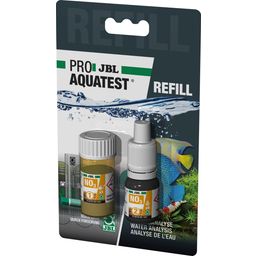
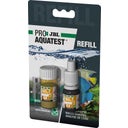
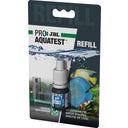
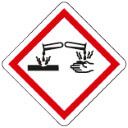
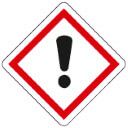
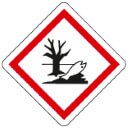
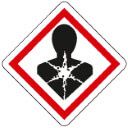
Hello! According to the manufacturer, the item should be stored, dry, at room temperature and in its original packaging.